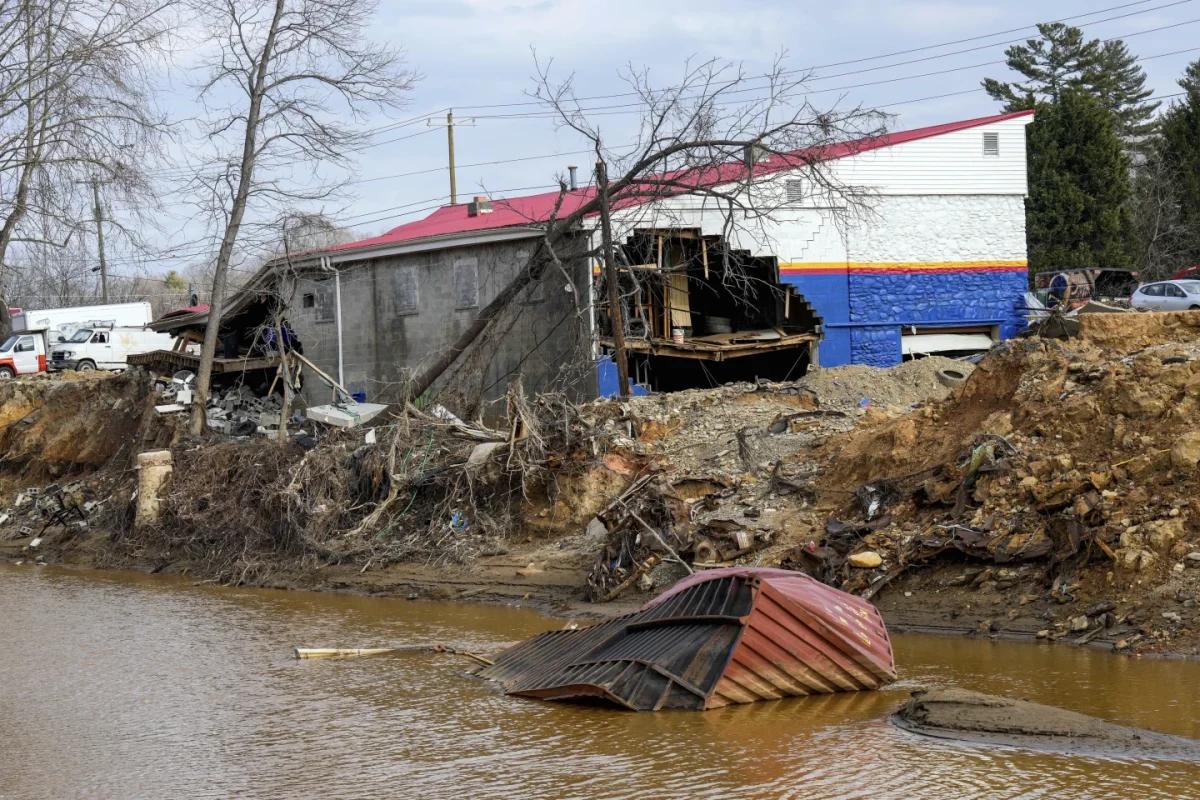Acting FEMA administrator Cameron Hamilton announced on April 11 that the federal government will stop matching 100% of Hurricane Helene recovery funds, reducing the amount to 90%. This move could cost upwards of $200 million, according to the Governor’s office.
Gov. Josh Stein released the following statement on FEMA’s decision to deny North Carolina an extension of the 100% match on recovery funds.
“Today, I learned that FEMA refused our request to extend its 100% reimbursement period for another 180 days,” Stein wrote. “I got this news while I was in Newland with families who lost their homes in the storm. The need in western North Carolina remains immense — people need debris removed, homes rebuilt, and roads restored. I am extremely disappointed and urge the President to reconsider FEMA’s bad decision, even for 90 days. Six months later, the people of western North Carolina are working hard to get back on their feet; they need FEMA to help them get the job done.”
President Donald Trump’s tariff increases could also affect the rising costs of rebuilding in the state, as materials will likely rise in price in the coming months, according to Stein. Rising costs, coupled with a decrease in funding from FEMA, could increase the time it takes to rebuild dramatically.
In the past few months, Local and state officials have requested that funding be extended for another six months to speed up the recovery process for the deadliest and costliest hurricane in the state’s history. The agency has come under fire from Trump and other conservatives in the federal government for wasteful spending.
U.S. Rep. Chuck Edwards, who represents Western North Carolina in Congress, supports the government’s decision to cancel the 100 percent matching of funds.
“A 100% cost share extension for 180 days is unprecedented,” Edwards told the Carolina Journal. “Instead, I’m focusing on other ways I can make a tangible difference in helping the citizens of Western North Carolina recover more quickly. This includes continuing to assist survivors with FEMA casework and working with the administration to find additional avenues to alleviate the financial stress our communities and the state of North Carolina are facing.”
North Carolina will appeal FEMA’s end to the 100% matching funds, Stein said.
“We were granted 30 days to appeal, which we will surely do,” Stein said during a Monday meeting of his advisory committee on western North Carolina. This funding problem may cause conflict between the state of North Carolina and the federal government, even as the General Assembly tries to curb the power of the executive to fight the Trump administration.
This cut to matching funding will certainly not pull FEMA out of North Carolina entirely, but it will make an impact on a state already struggling to rebuild, as fires also rage in the state.
North Carolina House Democratic Whip Amos Quick said there is still much work to be done and this funding cut will hurt the state.
“We were counting on the federal government, and we were promised by the incoming administration,” Quick said. “Even before the election we were promised candidate Trump that we will continue these things and now that President Trump and FEMA has decided not to do that, that’s really devastating for us.”
Local and state officials will have to reassess funding levels to Western North Carolina, and Stein and the General Assembly will have to adjust recovery funds in the upcoming state budget.











